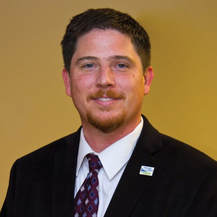
The diversity of the Central Valley is driven by global trends in immigration that have occurred over centuries. Recently, migrant farmworkers from Latin America have put down roots here as have refugees from civil wars and political instability in Southeast Asia. Despite a robust agricultural sector, the region has historically seen a lack of economic investments by private funders and foundations in comparison to the areas it is sandwiched between, Los and Angeles and the San Francisco Bay Area. All of these structural factors, intersecting with lower levels of formal education have created barriers to wealth accumulation and economic prosperity for many Central Valley communities.
“The income gap gets a lot of attention,” says Jeremy Hofer, Director of Operations, “but we see the wealth gap as an even deeper issue. You might have a family that is considered middle class in terms of income but deeply in the red in terms of wealth. If we’re really about fighting poverty we need to address the inequality in how wealth is distributed. We do this by helping entrepreneurs build small businesses. By supporting job creation and entrepreneurship, we hope to increase income and wealth. Whether it’s providing a referral or working with our borrowers on their marketing or financials, we try to meet them where they are at.” Access Plus Capital also sponsors trainings and workshops from one end of the 450 mile long valley to the other.
Access Plus Capital's business services are tailored to support low-moderate income small business owners and signing on to the Small Business Borrower’s Bill of Rights (BBoR) was an easy step. “It was a no-brainer,” stated Jeremy. “Whether we had the policy or not, we found we were following the principles of the BBoR already. It’s just the right thing to do.”
In terms of advancing fair lending practices in the small business lending industry Jeremy had this to say, “Strengthening disclosures in the online lending field is something that is needed. We do a lot of refinancing work with people who are uncertain of the true cost of the capital that they took out. There needs to be more credit education out there because financing a business can be tough to navigate, especially during a crisis moment.” In addition to disclosures, ethical standards for collections practices are a necessary component of fair lending. “A big part of lending is collections,” says Jeremy, “It’s not just about transparency in fees and getting out the money, it’s around fair treatment of borrowers and making sure that third-party collectors are in the same ethical space as we are. We try to be compassionate with our borrowers' circumstance and work side by side with them over time, not just at the time of the sale. We think this should be standard practice for the industry.”
We thank Access Plus Capital for taking the time to talk with us about the importance of the Small Business Borrowers’ Bill of Rights in the small business lending Industry.
If you are interested in learning more about the Small Business Borrowers’ Bill of Rights please email [email protected].
If your organization is currently a signatory or endorser of the Small Business Borrowers’ Bill of Rights and would like to be featured in our blog, please contact Gabriel at [email protected].

 RSS Feed
RSS Feed
